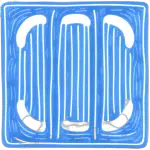Unlock a world of heating knowledge with our comprehensive resources and expert insights.
Guides and Resources
Not sure where to start? Read our latest articles….
- Advantages of geothermal HVAC systems
- Reducing HVAC costs through ventilation optimization
- Save Money on Energy Bills: Space Heaters vs. Central Heating
- HVAC duct cleaning frequency and benefits.
Your trusted source for all things heating
We strive to simplify your heating needs with expert research, recommendations, and a commitment to your satisfaction.



